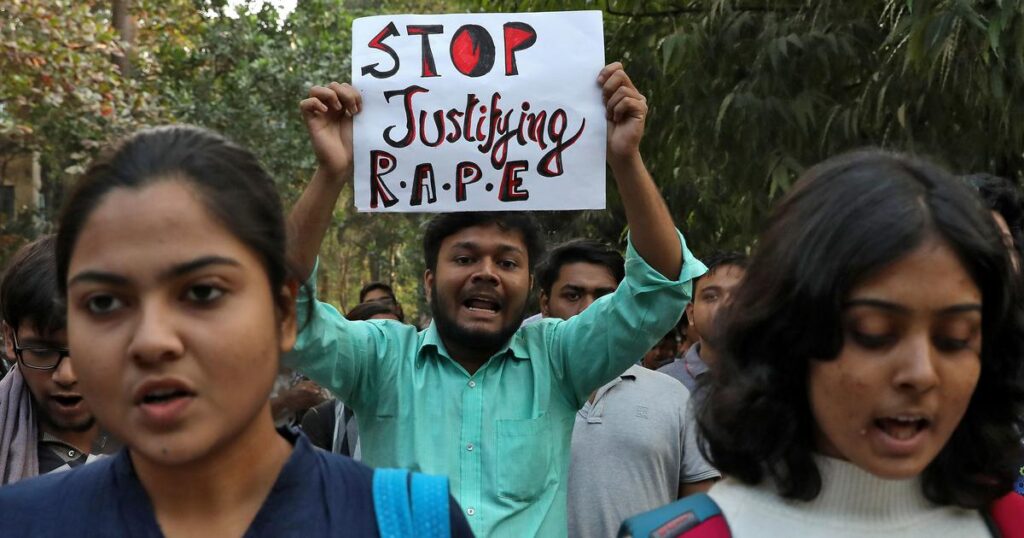The recent ruling by the Madhya Pradesh High Court, dismissing a woman’s complaint of “unnatural sex” by her husband, has once again brought the issue of marital rape into focus in India. This ruling highlights a glaring legal loophole in the Indian judicial system, where marital rape is not considered a crime under certain circumstances. Despite efforts by campaigners and activists to change the law, progress has been slow due to conservative attitudes and resistance to state interference in marital affairs.
Legal Background
In India, the concept of marital rape is not explicitly recognized as a criminal offense under the law. The legal exemption stems from colonial-era laws that have persisted despite significant social and legal reforms in the country. The exception essentially implies that a husband cannot be prosecuted for raping his wife if she is over the age of 18.
The ruling in question referred to Section 377 of India’s penal code, which historically criminalized “carnal intercourse against the order of nature.” However, this section was primarily used to prosecute same-sex couples engaging in consensual sex until the Supreme Court decriminalized homosexuality in 2018.
Case Details
The case before the Madhya Pradesh High Court involved a woman who alleged that her husband had forced her to engage in unnatural sex multiple times since their marriage in 2019. Despite her complaints to the police, the judge dismissed the case, citing the marital rape exemption in Indian law.
The woman also accused her in-laws of mental and physical harassment due to nonfulfillment of dowry demands. This aspect of the case is yet to be tried.
Legal Implications
Justice Gurpal Singh Ahluwalia’s judgment underscored the lack of recognition of marital rape in Indian law. He pointed out that under current legal provisions, if the act of rape is committed by a husband on his wife who is not below the age of 15, then the wife’s consent becomes immaterial. Marital rape remains unrecognized in India, even after the Supreme Court increased the age of marital consent from 15 to 18 in 2017.
Social Ramifications
The ruling has reignited discussions about women’s rights and safety in India, a country with deeply ingrained patriarchal norms. Despite significant legal and social progress, women continue to face discrimination and violence, particularly within the confines of marriage.
According to the 2019-2021 National Family Health Survey, a significant portion of women in India reported being unable to refuse sex with their husbands, and a substantial number believed that husbands were justified in resorting to violence if their wives refused sex.
Challenges and Advocacy
Campaigners and activists have long been advocating for the criminalization of marital rape in India. However, they face resistance from conservative quarters who argue that such laws could disrupt traditional marital structures.
The legal battle to recognize marital rape has seen various milestones, including a split verdict by the Delhi High Court in 2022. Despite this, the issue remains unresolved, with an appeal awaiting hearing in the Supreme Court.
Legal Alternatives
While marital rape is not explicitly recognized as a crime, there are legal avenues available to women facing such abuse. These include seeking restraining orders under civil law and invoking sections of the Indian Penal Code that cover sexual assault and domestic violence.
However, the effectiveness of these measures is often limited, as they are subject to interpretation by judges and may not always lead to prosecution or conviction.
Social Realities
A study conducted in 2022 revealed that many married women who report rape to the police, including marital rape, are often ignored or dismissed. In some cases, they are explicitly told that marital rape is not a crime.
This highlights the urgent need for legal reform and societal awareness to address the prevalence of marital rape and ensure that victims receive adequate protection and support.
Conclusion
The case before the Madhya Pradesh High Court serves as a stark reminder of the legal and social challenges surrounding the issue of marital rape in India. Despite progress in women’s rights and legal reforms, the country continues to grapple with deeply entrenched patriarchal attitudes that undermine women’s safety and autonomy within marriage.







